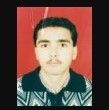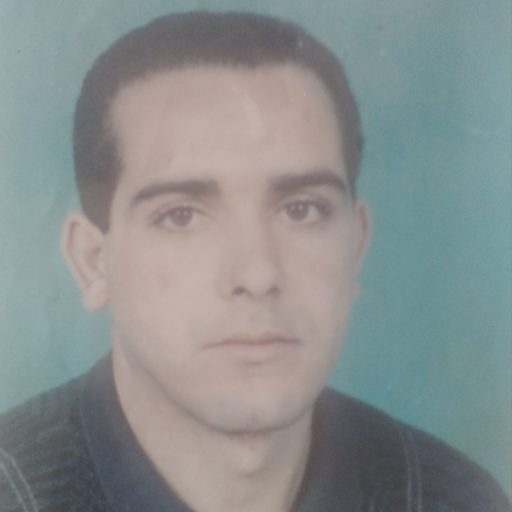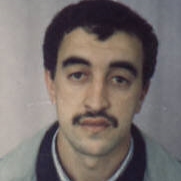
Djamel and Mourad Chihoub
Date of arrest: 1996-05-16
Forces responsible: Army
Summary
On May 16, 1996, at 8 a.m., a group of members of the Algerian army arrived at the Chihoub family’s home in Baraki. The group included about 20 soldiers from the barracks in Baraki dressed in paratrooper uniforms, accompanied by two agents from the Research and Security Department (DRS) dressed in civilian clothes and a hooded militiaman. The soldiers had with them a list of names and photos. The commander showed their father a photo of his eldest son, Saïd Chihoub, who had left the family home about a year and a half earlier, and asked where he was. Saadi Chihoub said that he did not know. The soldiers then seized Djamel Chihoub, saying “when Saïd gives himself up, then we will free Djamel”. Saadi Chihoub and his youngest son Mourad tried to intervene, but the soldiers hit Mourad, who fell to the ground. After snatching Djamel away from his father, the soldiers left the premises, taking the young man away with them.
Djamel’s abduction was part of a raid conducted jointly by various branches of the army, during which several persons from the same neighbourhood were also arrested. Djamel Chihoub was allegedly first taken to the barracks of the DRS, then to the operational command headquarters in Châteauneuf, according to a fellow prisoner. According to other unconfirmed sources, he was said to have later been transferred to the barracks of the DRS in Beni Messous. His family has never seen him since. His elder brother, Saïd Chihoub, whom the soldiers were looking for when they entered the family home, was subsequently shot dead in the street by security forces during a clash on June 27, 1996. Yet, Djamel Chihoub was never freed.
On November 13, 1996, at around 11 p.m., about a dozen soldiers from the Baraki barracks broke down the door of the residence and arrested their youngest son, Mourad Chihoub, then 16 years old, without showing any arrest warrant or even providing any explanation. The soldiers were also accompanied by at least one militiaman who lived in the neighbourhood, was well-known by the residents, and often took part in similar operations.
Mourad Chihoub was allegedly first brought to the Baraki barracks along with other arrested persons. His family later learned from fellow prisoners who had subsequently been released that Mourad Chihoub had allegedly been detained there for three months before being transferred to the operational command headquarters in El Madania and then to the DRS Centre in Ben Aknoun. Since then, no one from his family has seen him or heard any news of him.
Steps taken
1996: Following the arrest of Djamel and then of Mourad Chihoub, the Chihoub family regularly enquires with various barracks, police stations and gendarmerie posts in the region and with the Public Prosecutor’s office of El Harrach, with no success.
July 15, 1996: Their father writes a letter to the President of the National Human Rights Observatory asking him to shed light on the fate of his son Djamel.
July 26-27, 1996: Their father writes a letter to the President of the Republic and to the Minister of Justice.
September 7, 1996: Their father writes two letters to formally petition the Public Prosecutor of the Supreme Court of Algiers regarding the abduction of Djamel Chihoub.
March 16, 1997: The family addresses a second letter to the President of the Republic and a letter to the Ombudsman, asking them to intervene to shed light on the disappearance of the two brothers.
June 4, 1997: The family writes again to the Minister of Justice.
January 18, 1998: The Ombudsman confirms receipt of the father’s petition filed 10 months before.
July 4, 1998: Their mother writes a letter to the President of the Republic.
November 13, 1999: The National Human Rights Observatory informs the family that, according to the results of an investigation conducted by a unit of the national gendarmerie, Djamel Chihoub is not wanted by the authorities and the security services have not issued a warrant for his arrest, and that in any case the investigation had not shed any light on his fate.
October 9, 1999: The father files a formal complaint with the investigating judge of El Harrach regarding the abduction and disappearance of his son Mourad Chihoub.
December 22, 1999: The mother files a complaint with the Public Prosecutor of Algiers regarding the abduction of her two sons and writes to the Minister of Justice asking whether sons are alive, and if so, where they are being held.
Early 1998: The family is summoned on several occasions to give statements before various national authorities, including the gendarmerie, the Military Prosecutor’s office, the investigating judge of El Harrach, the police of the Daïra of Baraki, the principal Public Prosecutor’s office of Algiers, and the National Consultative Commission for the Protection and Promotion of Human Rights.
October 19, 1998: The Chihoub family requests the intervention of the UN Working Group on Enforced or Involuntary Disappearances (WGEID).
April 3, 2000: The investigating judge of El Harrach discontinues the proceedings in a dismissal of action of which the family was notified in a brief, handwritten note that gave no reasons for the decision.
August 25, 2008: Having exhausted all domestic remedies, the Chihoub family seizes the UN Human Rights Committee.
Decision of the Human Rights Committee
Right to life, prohibition of torture and cruel and inhuman treatment (including in relation to the authors), right to liberty and security of person, respect for the inherent dignity of the human person, recognition as a person before the law, prohibition of unlawful and arbitrary intrusions into one’s family life, right to family life, right to protection for minors.
The State party must provide the authors with an effective remedy, including by (i) conducting a thorough and effective investigation into the disappearance of Djamel and Mourad Chihoub; (ii) providing their family with detailed information about the results of the investigation; (iii) freeing Djamel and Mourad Chihoub immediately if they are still being detained incommunicado; (iv) if they are dead, handing over their remains to their family; (v) prosecuting, trying and punishing those responsible for the violations committed; and (vi) providing adequate compensation for the authors and their family for the violations suffered, and for Djamel and Mourad Chihoub if they are still alive. Moreover, and notwithstanding Ordinance No. 06-01, the State party should ensure that it does not impede enjoyment of the right to an effective remedy for the victims of crimes such as torture, extrajudicial killings and enforced disappearance. The State party should also take steps to prevent similar violations from occurring in the future.




